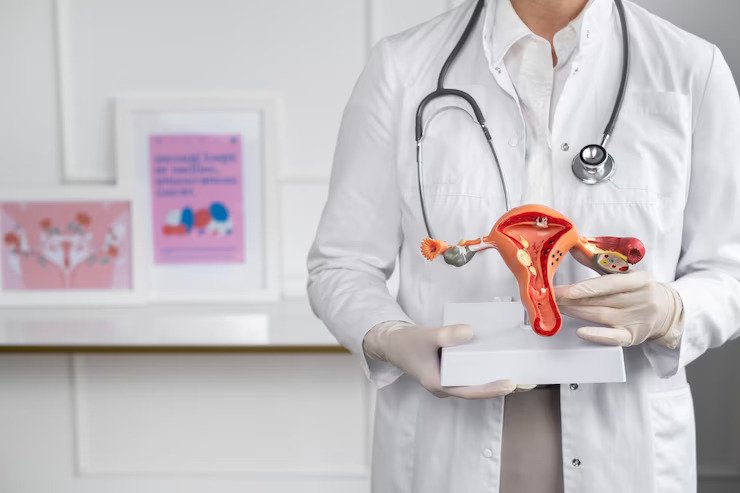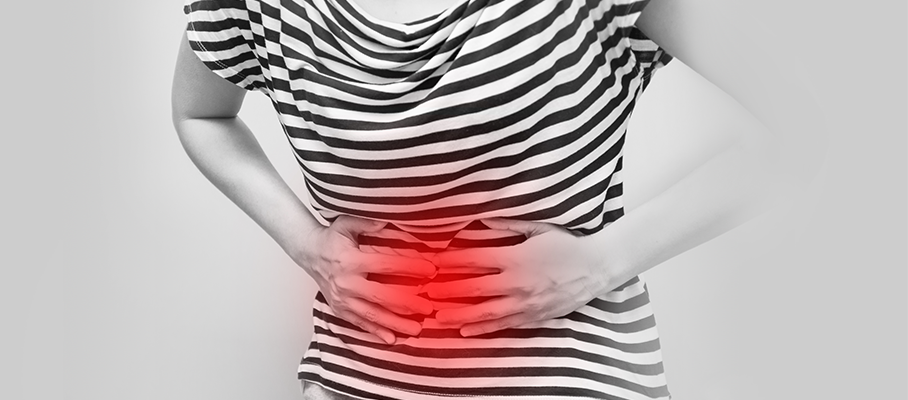PCOD
PCOD: Symptoms, Causes, Diagnosis, and Problem
What is PCOD? Polycystic Ovary Disease (PCOD) affects the ovaries by forming cysts. PCOD is a common condition that closely affects 10 out of 100 women between 12 and 48 years of age. The formation of characteristic cysts (fluid-filled sacs) marks the prognosis of the condition which subsequently causes irregular, prolonged, and delayed menstrual cycles. Healthy ovaries produce a small number of androgens (male reproductive hormones); however, in PCOD, a hormonal imbalance contributes to disease prognosis. In excessive conditions, PCOD may cause infertility as well. If left untreated, PCOD can contribute to major issues like heart disease and diabetes. Symptoms of PCOD Here are some common symptoms of PCOD: Acne: Women suffering from PCOD commonly develop visible acne in various parts of the body such as the face, neck, and back. Irregular Periods: Irregularity in your periods is not a good sign. Some women also experience a heavy flow which is an underlying sign of menstrual irregularity. Fluctuating Weight: Most women with PCOD are obese or overweight. If you are unable to lose weight even after exercising and following a diet it could be a sign of PCOD. Hair Fall: Hair fall or thinning will occur prominently even after following a healthy scalp routine. Diabetes: Women suffering from PCOD are at a higher risk of getting diabetes as an associated co-morbidity. Migraines Hyperpigmentation: Visual hyperpigmentation around the mouth, neck, and private parts. Crown Baldness: Women suffering from PCOD can experience male pattern baldness, and some even lose their hair from their crowns. Excessive Hair Growth: Most women who suffer from PCOD have hair growth on their face, back, stomach, and chest. The condition is also called hirsutism. Depression: All these symptoms and changes can overwhelm you and may cause depression. It is important to keep a check on all symptoms as many can go neglected or unattended due to one's lack of knowledge of the subject. If you find anything unusual about your body or if you notice any of these symptoms, you must consult a doctor. Causes of PCOD These are the factors that can cause PCOD: High levels of inflammation Heredity Unhealthy lifestyle High production of male hormones (androgen) Excess insulin Insulin resistance Obesity Pollution Poor diet Lack of proper nutrition Although PCOD is a disorder, not a disease if it is not treated on time can cause many complications such as infertility, diabetes, heart disease, endometrial cancer, and depression. Diagnosis of PCOD There are various tests that can help diagnose PCOD. Your doctor will be able to check your symptoms after discussing all your worries. Blood Tests to check FSH (Follicle Stimulating Hormone), LH-Luteinizing Hormone, Prolactin, Total Testosterone, Free Testosterone, blood sugar, blood pressure, glucose tolerance, cholesterol and triglyceride levels. Ultrasound to check the appearance of your ovaries and reproductive system and to spot unusual mass(s) or cyst(s) present. Physical Examination to check excess hair growth or acne. Diet for PCOD There is no specific medication to treat PCOD, but nutrition and diet can play a major role in controlling it. Include the following types of food in your daily diet to get rid of your PCOD worries: Food that is low in Glycemic Index (GI): Consuming food with a low glycemic index will help you to stay full for longer and will not cause a spike in your insulin level. This is because low glycemic index foods are digested slowly. Therefore food items such as whole grains, legumes, nuts, seeds, fruits, non-starchy vegetables, and other unprocessed, low-carbohydrate foods will be highly beneficial. Anti-Inflammatory Foods: These food items will help in alleviating inflammation-related symptoms. This category includes berries, fatty salmon, leafy greens, and extra virgin olive oil. More food items that must be included in your diet if you have PCOD are: Fish rich in omega fatty acids such as tuna, sardines, and salmon. Leafy green vegetables such as spinach, broccoli, and kale. Healthy fats such as nuts, olive oil, avocados, almonds, and pistachios. Unrefined and natural food. Dark chocolate but in moderation. Spices, such as turmeric and cinnamon. Furthermore, avoid the following foods as they will cause you discomfort: Fried and fast food such as french fries and burgers Fizzy drinks, cold drinks, and energy drinks Processed food and meat Red meat Conclusion PCOD is a lifestyle-related disorder in women. It is caused due to stress, poor diet, and lack of physical workout. Treatment options for PCOD are limited, making the condition more imposing. With healthy lifestyle changes (protein-rich diet, daily workout sessions, meditation) and self-appraisal (menstrual cycle track), PCOD can be kept at bay. If you experience irregular periods, sudden weight gain, facial hair, or any other related symptoms, visit your gynaecologist soon. For a comprehensive check-up, connect with Metropolis Healthcare, a leading pathology lab and diagnostic centre. Metropolis offers a multinational network, a wide range of clinical laboratory test facilities, and senior pathologists to deliver diagnostic solutions. The accessibility of stay-at-home blood collection service, online tracking of samples, and report download from a single app make Metropolis even more women-friendly.
Phani Trivedi on her PCOD experience, Pregnancy and Managing Life with PCOD
I was once called a sexy-sleek woman with that Indian touch of sensuousness…..But now, not age, but a disease has mellowed me down in every such aspect of taking pride in being a women. My ovaries have many watery cysts, I have PCOD and I am living with it since 2003. Resultant effects are alarming. Enlarged ovaries, pressure on pancreas, zero control on menstrual cycle, fear of getting type-2 diabetes, dirty acne on face, mood swings like a pendulum…..so much for my grey cells to absorb!! Now, I can only call myself lucky, as I have been able to conceive with the help of acupressure & the third attempt of IUI (Intrauterine Insemination) treatment led to fertilization of a healthy 23 mm sized egg. I delivered a baby boy with a NORMAL delivery. Had undergone Garbh Sanskar Vidhi, an Ayurvedic treatment for first 3 months post which I underwent a tough diet & walking regime, as I was determined not to undergo a C-section. Determination has paid off in my journey so far, as I was gifted a handsome, healthy baby boy who is 6 years old now, with well-developed features & brain too!!But my happiness was short lived when in spite of breastfeeding for 1.5 years, my hope to restore my hormonal balance failed. I have PCOD even in 2014 now & nothing is fine anymore. Neither my periods NOR my looks. Moral of the lesson: Preventing PCOD is better than cure. Ever since I knew from the internet that there is no cure to PCOD, I have had no options but to protect my body from its long-term consequences. Preventing PCOD is not easy task. Now I take Vit-B12, Vit-D3 tablets & calcium from natural food sources. I have stopped taking sugar. Initially, I started with sugar free natura but now I consume sugar from plant product like Stevia leaves. I have recently decided to detoxify my body with Virochan Ayurveda procedure & then attack inch loss, if not weight loss. After spending 40,000 rupees on herbal treatment, I am still striving hard to slim down. I have some more money going into Ayurvedic treatment these days. But to prevent permanent health issues, I am ready to do EVERYTHING. After my Ayurveda Panchkarma, Yoga & Treatment for hormones, face, hair, inch loss, I will meet you again with proof of any answers to what works & what doesn’t. Watch out!!! Contributed by Phani Trivedi – Founder at WasteEngage, Chairperson at Businesswomen Wing at Gujarat Chamber of Commerce
 Home Visit
Home Visit Upload
Upload
















 WhatsApp
WhatsApp